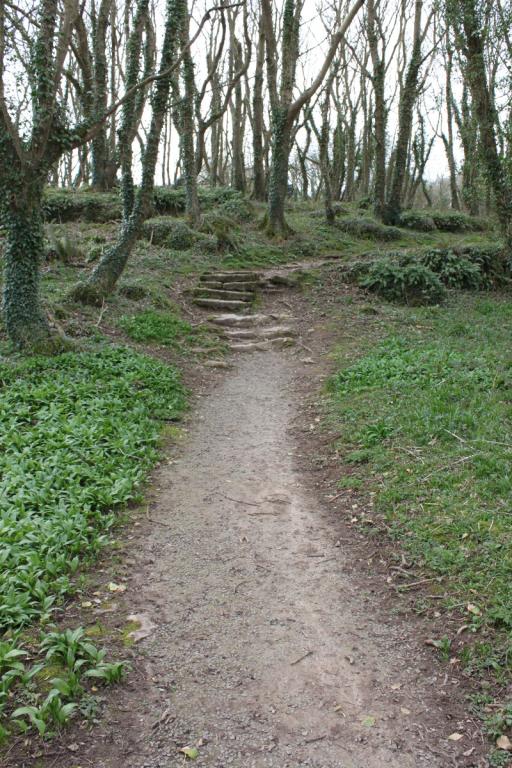 If you think leadership means telling people what to do you’ve missed the point in a very bad way.
If you think leadership means telling people what to do you’ve missed the point in a very bad way.
There’s been a lot of talk lately around the idea of Pagan leadership. I wrote on my definition of priesthood and on the idea of paying Pagan clergy. Yeshe Rabbit has this very good essay on her work as a priestess, and Thorn Coyle detailed her work as a full-time Pagan leader and how much money she makes through it. Perhaps the closest to my own thoughts is this piece by Yvonne Aburrow.
But although priests and priestesses are almost always leaders, leadership is not their primary mission – that mission is serving the Gods, mediating for the Gods, and serving their communities. Having said what I wanted to say about priesthood, it’s now time to talk about leadership.
I’ve studied leadership in school, I’ve trained for it in my paying job, and I’ve practiced it myself. At times I’ve rejected the title of leader, at times I’ve accepted it reluctantly, and at times I’ve come to the conclusion that I had to be a leader if I was going to do what I felt had to be done.
Despite all that, I’m no expert on leadership. This is what I do and why I do it. As with everything else I write, if you find it helpful, use it where you can. If you don’t find it helpful, try something else.
Small Group Leadership
I’m the Coordinating Officer of Denton CUUPS – that’s an elected office that corresponds to president. My job, as the title implies, is to coordinate all our activities and our relations with other groups.
I don’t make all the decisions. Actually, I make very few decisions in my role as Coordinating Officer. Our calendar is set by informal consensus in a sit-down meeting every Fall. Members volunteer to lead rituals as they’re inspired. Classes and activities begin when someone has an idea of something they want to lead, or a request for something they want to learn. We have seven members who each have over 20 years experience in various Pagan traditions, plus some enthusiastic and capable newer folks – no one person has to carry all the load.
With an arrangement like that, why do we even need a Coordinating Officer? I don’t have to make all the decisions, but someone has to make sure all the decisions get made. Someone has to make sure the flyers get posted, the announcements get sent, and the website gets updated. Someone has to make sure we have candles for the altar and wine for the offerings. Someone has to work with the church administrator on building usage, and someone has to be a go-to person when the minister or board president has questions or suggestions.
If I were to move to Oregon, would these things still get done? I’m sure someone would step up and do the coordination work I do, but someone would have to do it. If everyone assumes someone else will take care of things, sooner or later something important falls through the cracks and doesn’t get done. My job is to make sure everything that’s supposed to get done actually does get done.
Individual Leadership
When I’m serving as Coordinating Officer of Denton CUUPS I know what needs to be done: what we said we want to do and what our by-laws say we will do. But if you come to me for spiritual guidance, I don’t know what you need. I don’t know your religious history or your spiritual background. I don’t know if you’re a polytheist, a pantheist, a panentheist, a non-theist or some combination thereof. I don’t know what calls to you: Nature? The Gods? Magic? Social justice? Dreams of a better world?
I can ask questions based on my experience, and if those questions happen to be meaningful to you I may be able to help you figure out who or what is calling you. Or not. But even if I can, I can’t possibly tell you how to answer that call. For one thing, I don’t know. And even if I have a pretty good idea, the only person who can take responsibility for your spiritual growth and development is you.
If you decide your calling is Gardnerian Wicca, I can’t help you – I’m not a Gardnerian Wiccan. If you decide your calling is OBOD Druidry, all I can to is point you toward the OBOD website and encourage you to sign up for the Bardic course – that’s the way OBOD works. Even if you fall in love with my particular blend of polytheistic Druidry practiced largely in a UU setting (total worldwide followers: 1 – me) , all I can tell you is “this is what worked for me.” Maybe it will work for you and maybe it won’t.
I think of the elders I’ve consulted and studied under over the years. Each one had something unique to teach and I learned something from all of them. But none of them “fit” perfectly. That’s one of the most difficult questions I have to deal with – am I rejecting what a respected elder suggested because it just doesn’t fit me, or am I rejecting it because it’s hard and I don’t want to do it?
The only person who can take responsibility for my spiritual growth and development is me.
My Living Room, My Soapbox
My small group leadership is one of service. My individual leadership is one of reflective guidance. But I practice a third form of leadership here on this blog, one of dialogue and advocacy.
Near the center of my being lies an insatiable curiosity. I want to know: what, how and why. That thirst for knowledge has led to a lifelong pursuit of reading, studying, listening, traveling, and experimenting. I’m hardly unique in this regard, particularly in the Pagan community.
And while knowing is important, it’s not enough. What does it all mean, and what can I do with it? How do I turn data into information, information into knowledge, and knowledge into wisdom? So I think about what I’ve learned, looking for patterns, similarities, and cause and effect. I ask “what if?” and try to project what might happen if this or that was changed, and whether the outcome would be helpful or harmful or irrelevant.
Religious thinking is inherently uncertain – asking if my ideas are “right” is an impossible question. A more useful question is if my ideas as good as they can be. And I can’t answer that question on my own – that question requires dialogue.
One of the reasons I blog about matters of belief and practice is to give you a chance to tell me I’m wrong. Mind you, I don’t like being told I’m wrong. But if some other belief or practice is more meaningful, more helpful, and more representative of reality as I understand it, then I want to re-evaluate my thoughts and make any necessary adjustments.
This blog is my living room, which is part of the great living room of the Pagan internet. As the links I listed in the beginning of this post illustrate, once an idea starts moving, different people with different perspectives start weighing in. If we’re reading and responding thoughtfully, we have a tremendous opportunity for learning and growth.
This is one way we show up to the debates on the issues that will define Paganism for future generations.
This blog is more than a living room – it’s also a soapbox.
Paganism, polytheism, Druidry, Unitarian Universalism – it’s all been very helpful to me. I just wish I had found it earlier in my life. I can’t do anything about my past, but I can make it easier for future would-be Pagans to find the religions that call to them.
I can do something to tell those who are suffering in oppressive religions that there are other alternatives.
I can do something to make it easier for non-Pagans to learn something about who we really are and what we actually do.
I can do something to promote good science and scholarship and to discourage confusing myth with history.
What authority do I have to promote my ideas on these subjects? The strength of the evidence and the reasoning I present. That’s all. My positions and my experience are reasons why you may want to listen to me, but they’re no guarantee what I have to say is right. If you find my thoughts helpful, great. If you don’t, welcome to my living room – have a seat and join the conversation.
Definitions
Google “leadership” and you’ll get a variety of definitions – and a lot of people offering to teach you how to be a leader, for a price that ranges from “high” to “only the 1% need apply.” I’ve talked about the different ways I lead but I haven’t defined leadership, other than to say it’s not about telling people what to do.
To me, leadership is encouraging people to make progress toward desired goals and equipping them to do so. It’s part teaching, part cheerleading, and part hands-on work.
The best leaders I have encountered are passionate about their work and knowledgeable about how to accomplish it. They have a strong ethical base – they understand the ends don’t always justify the means. And they have compassion – they understand people aren’t just “resources,” they’re people with inherent dignity and worth and sovereignty of their own.
Bad leaders manipulate people to achieve their goals. Good leaders understand that people who are informed and involved are more effective contributors toward their goals. Great leaders realize that helping people become who and what they’re called to be makes them most effective, and also helps build the kind of world we all want to live in.
Any movement will have leaders. As Pagans, let’s call out the bad ones, support the good ones, and imitate the great ones.

















